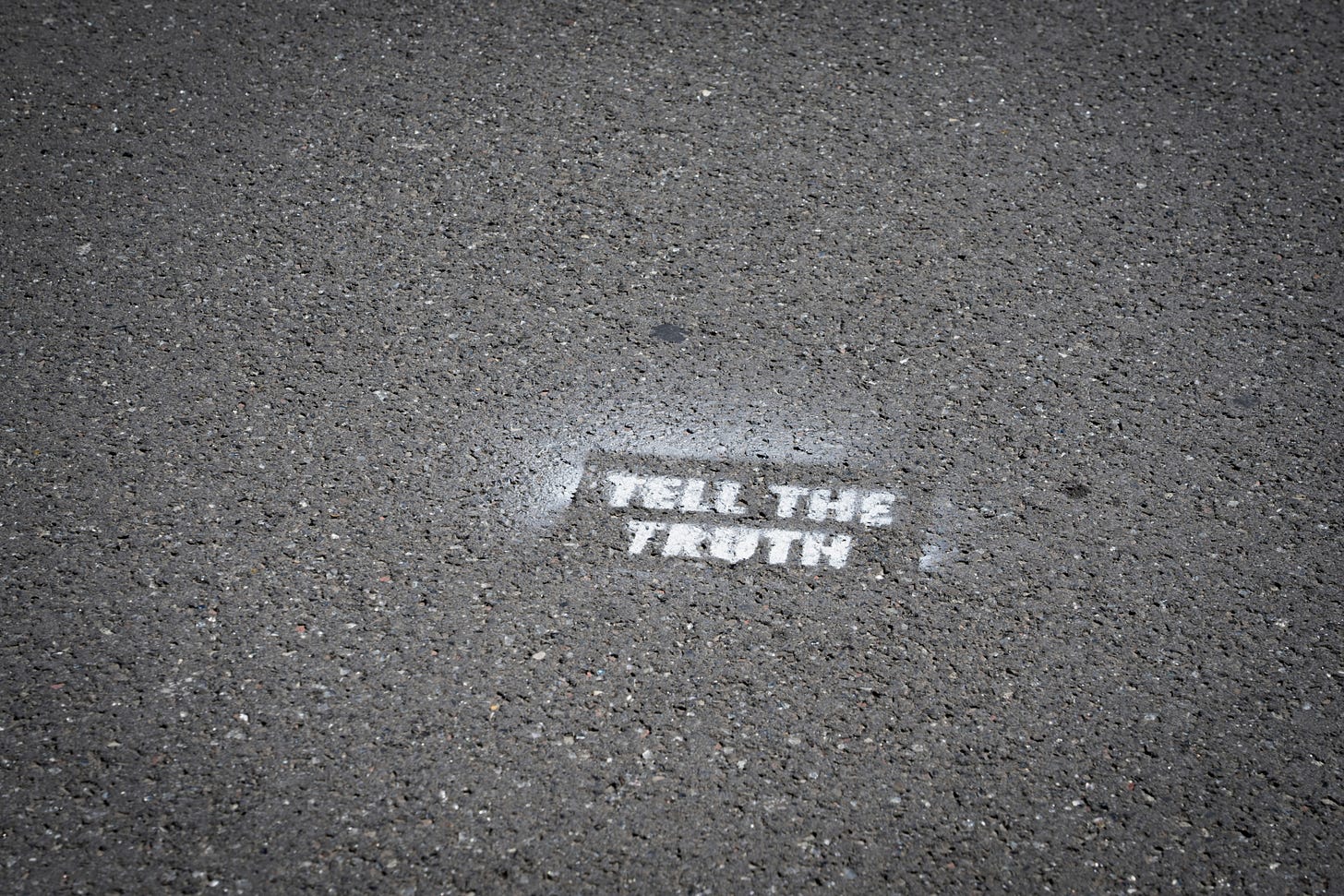No Truth Will Ever Require Lies to Prop It Up
Why truth stands on its own while falsehood depends on propaganda and coercion.
Truth does not wobble on the crutches of lies, neither does it subsist on the protestations of charlatans. It needs no affirmation beyond its inherent clarity nor does it rent a mob to chant its virtues. Truth stands where it has always stood, firmly rooted on the bedrock of reality, while we as humans decide whether to plant our feet beside it or be swept downstream by the flood of fashion and fear. Eternally arrayed on the opposite of truth are lies. Unlike truth, however, lies must be carried. They survive on a scaffolding of obfuscation, euphemisms, censorship, and a coercive desire for control. That is why I say: no truth will ever require lies to prop it up.
Truth’s Native Strength
Truth has a native, self-authenticating strength. It is consistent across time, coherent across disciplines, and confirmed by consequences in the real world. You can test it in the laboratory of life; it will not change its story under pressure. Truth invites scrutiny, welcomes debate, and offers you the dignity of persuasion rather than the shame of intimidation. It leaves your agency intact.
Falsehoods can’t tolerate that kind of light. They flinch when examined, morph when questioned, and demand that you silence dissenters instead of answering them. Lies fear the freedom of an open marketplace of ideas, which is why they hunt for shortcuts: propaganda to numb the mind, coercion to paralyze the conscience, and social cost to muzzle the honest.
How Lies Survive
Lies survive by borrowing the credibility of words they do not deserve and the power of institutions they did not build. They attach themselves to our best impulses—compassion, fairness, safety, and then redefine those words to camouflage their real intent. The tactic is ancient: rename the vice as virtue, relativize the standard, punish the dissent. It is easier to mandate a narrative than to establish a fact. It is easier to stigmatize a question than to provide an answer.
Consider the pattern:
Euphemism: Change the label so the conscience won’t protest.
Censorship: Change the rules so the question won’t be asked.
Coercion: Change the incentives so the honest won’t resist.
Surveillance of speech: Make your neighbor the enforcer.
Historical amnesia: Cut the roots so the tree forgets how to bear fruit.
Falsehoods require constant subsidy, of money, media, and moral courage they do not generate. They are like invasive weeds that need the gardener’s neglect to grow; they spread when good men are shamed into silence.
Truth, Freedom, and the Burden of Proof
Freedom and truth are covenant friends. Freedom is the civic condition that allows truth to compete; truth is the moral content that makes freedom worth keeping. The Founders understood that liberty without virtue curdles into license; power rushes into that vacuum and starts calling itself compassion. Without the guardrails of truth, the state will play god, and when the state plays god, man becomes subject.
This is why coercive utopias always demand your silence first and your soul next. They promise outcomes while bypassing the hard work of persuasion. Instead of lifting people, they flatten them. If a policy requires that you lie about human nature to support it, the policy is not compassionate; it is counterfeit. If a movement punishes honest questions as blasphemy, it is not seeking justice; it is seeking jurisdiction over your mind.




